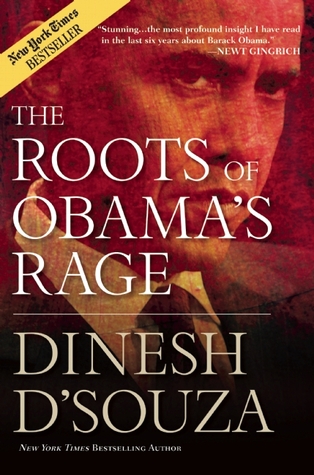GO TO PART 7

I. Introduction
a. Covenants were not given in a vacuum that is in the absence of other covenants.
b. The beauty of Christianity is the coherence of the multifaceted aspect of Christian theology.
c. Although not exhaustive, the ramification of Biblical Covenant in relations to other aspects of Christianity is explored here.
II. Hermeneutics
a. Hermeneutics concerns the rule and method of interpretation in general and the Bible in particular.
b. Relationship
i. Hermeneutics in light of the Covenants
1. Covenants are the thread that goes through the entire Bible.
2. An understanding of the Covenants allow fuller contextual background in making sense of the passages.
3. Understanding elements of the Covenant illuminates Biblical passages:
a. How does God’s promise in the Covenants illuminate this text?
b. Does the passage reveal God’s covenantal blessings and curses taking place?
c. What is God’s Covenantal requirement here in this passage?
ii. The Covenants in light of hermeneutics
1. How one properly understand the Covenants is the result of proper hermeneutics.
2. Understanding the Covenants begin with the basic hermeneutical principles used in beginning to interpret any passage of Scripture.
3. Historical-Grammatical approach still applies to passages that discuss about Biblical Covenants.
III. Apologetics
a. Apologetics is the art and science of defending the Christian faith as true and refuting error contrary to the faith.
b. Relationship
i. Apologetics in light of the Covenants
1. There are Covenantal promises given which have been fulfilled.
2. There is an evidential value to these Covenantal promises that have been “prophesied” and “fulfilled”.
a. Example: Jesus Christ is the Messiah in light of the promise of the Davidic Covenant.
b. Example: Uniformity of Nature such as set days, months and season is accounted for within the Christian worldview because of the Noahic Covenant (Genesis 8:22).
ii. The Covenants in light of Apologetics
1. Future Covenantal promises will be fulfilled because the Word of God is true.
2. The truthfulness of the Word of God is the domain of apologetics.
IV. Soteriology
a. Soteriology is the area of theology pertaining to Salvation.
b. Relationship
i. Soteriology in light of the Covenants
1. Details of Salvation is slowly revealed in the Covenants.
Example: Salvation for the Gentiles is revealed in incipient form through the Abrahamic Covenant (Genesis 12:3)
2. The fullest expression of Soteriology in the Covenants is found in the New Covenant.
ii. The Covenants in light of Soteriology
1. Any proper assessment of the relationship between the Mosaic Covenant to the Abrahamic Covenant must take into account Scripture’s clear testimony of salvation by grace alone through faith alone in Christ alone (Romans 3:27-4:25; Galatians 3).
2. In light of progressive revelation, New Testament understanding of soteriology gives us a fuller perspective of one of the ways that Gentiles has been blessed through the promise found in the Abrahamic Covenant (cf. Romans 1:16).
V. Israelology
a. This is the area of theology that pertains to the doctrine of Israel.
b. Relationship
i. Israelology in light of the Covenants
1. God is a Covenant keeping God who does what He promise.
2. Biblical Covenants proves that God still has a place for Israel in the future.
ii. The Covenants in light of Israelology
1. Outside the passages mentioning the Covenants, what does the data of Scripture shows concerning the truth of the promises God covenantally made to Israel?
VI. Eschatology
a. Eschatology is the area of theology that pertains to last things and end times.
b. Relationship
i. Eschatology in light of the Covenants
1. What are the Covenantal promise of God and concepts from the Covenant that will be fulfilled eschatologically?
Example: There is no unfolding of heaven without the “root of David” (Revelation 5:5)
2. In light of the Biblical Covenants, does Israel as a nation have a role in the future?
ii. The Covenants in light of Eschatology
Can a Bible-centered eschatology provide any further insight as to when certain Covenantal promises be fulfilled?
VII. Sanctification
a. Sanctification is the initial act of God and the progressive work of God of setting believers apart for Him.
b. Relationship
i. Sanctification in light of the Covenants
Believers can be sanctified in their hearts and obey God’s law because the New Covenant has promised God’s law written in their hearts (Jeremiah 31:31).
ii. The Covenants in light of Israelology
Fulfilling God’s Covenantal requirement can only be possible because of God’s sanctification of believers.
VIII. Glory of God
a. The fame of God.
b. Relationship
i. The glory of God in light of the Covenants
1. Worship- All the great truths about God’s Covenants should lead believers to worship God even more deeply!
a. Give glory to God for the revelation of His Covenants!
b. Give glory to God for what His Covenants promises!
c. Give glory to God for the great and deep truths of the inter-relationship of the Covenants!
d. Give glory to God for how majestically wise He is, to have the Covenants be tied in inter-relationship with other aspects of Christian theology!
e. Give glory to God for how majestically wise He is, to have the Covenants bear implications for the Christian life!
f. Give glory to God for how majestically wise He is, to have the Covenants bear implications for Christian thought!
g. Give glory to God for the beauty of the coherence of the Covenants and other aspects of theology! The beauty of the great design He has in the intricate inter-relationship and implications of Covenantal truths with other spheres of study!
2. Hope- The Covenants should give believers hope
a. Because as part of the Word of God, the Word of God by design gives hope (Romans 15:4)!
b. Because God has given His promise!
c. Because God is Covenantally faithful!
d. Because the truth of God’s Covenantal promises is a part of the “defense to everyone who asks you to give an account for the hope that is in you” (1st Peter 3:15)
ii. The Covenants in light of the glory of God
1. No matter what the requirements might be in each respective covenant, “Whether, then, you eat or drink or whatever you do, do all to the glory of God” (1st Corinthians 10:31).
2. “Whatever you do,” including studying the Biblical Covenants, “do all to the glory of God!”
3. Studying the Covenants itself, no matter how trivial, boring and unimportant some non-Christians and even Christians might think it is, is totally relevant if it glorifies God since all we do should glorify God! Glorifying God is also relevant!
Read Full Post »














Review: Memoirs of the Way Home: Ezra and Nehemiah by Gerald M. Bilkes
Posted in Bible, Bible Commentary, Book Review, Christianity, Ezra, Gerald M. Bilkes, Nehemiah, Reformed, tagged Commentary on October 21, 2013| 8 Comments »
NOTE: This book is provided to me free by Reformation Heritage Books and Cross Focused Reviews without any obligation for a positive review. All opinions offered above are mine unless otherwise stated or implied.
Purchase: Westminster | Amazon
This is a short paperback devotional commentary on the book of Ezra and Nehemiah. It is written by a faculty member of the Puritan Reformed Theological Seminary. I appreciated the work’s devotional flavor. Reading through the book I wanted to see how the author would go about using other Scripture for cross referencing in light of the fact that Gerald Bilkes is a professor of biblical theology. He definitely is Christ-centered and Gospel driven. In addition, he gives New Testament priority in his hermeneutics. Thus, Bilkes sees both the book of Ezra and Nehemiah as being about the journey of conversion which leads him to notice that both Ezra and Nehemiah resembled the parable of the Prodigal Son: The fallen son has returned home to the Father. However the author sees it more than mere similarity since Bilkes invokes this parable again and again: It would be correct to say that Bilkes sees Ezra and Nehemiah through the interpretative lens of the parable. I think this can downplay other details and movements within the passage of Ezra or Nehemiah. I also wished that the book could have gone deeper in it’s exposition of Ezra and Nehemiah; I was yearning for more moments in the book where perhaps the author might have given exegetical insights that I would have not gotten if I were to read Ezra and Nehemiah on my own. Nevertheless this devotional was spiritually profitable and I appreciate Bilkes format of ending each chapter with some follow up questions. One definitely sees the influence of Puritans upon the author, with the book’s probe of the reader’s heart and motive.
Read Full Post »